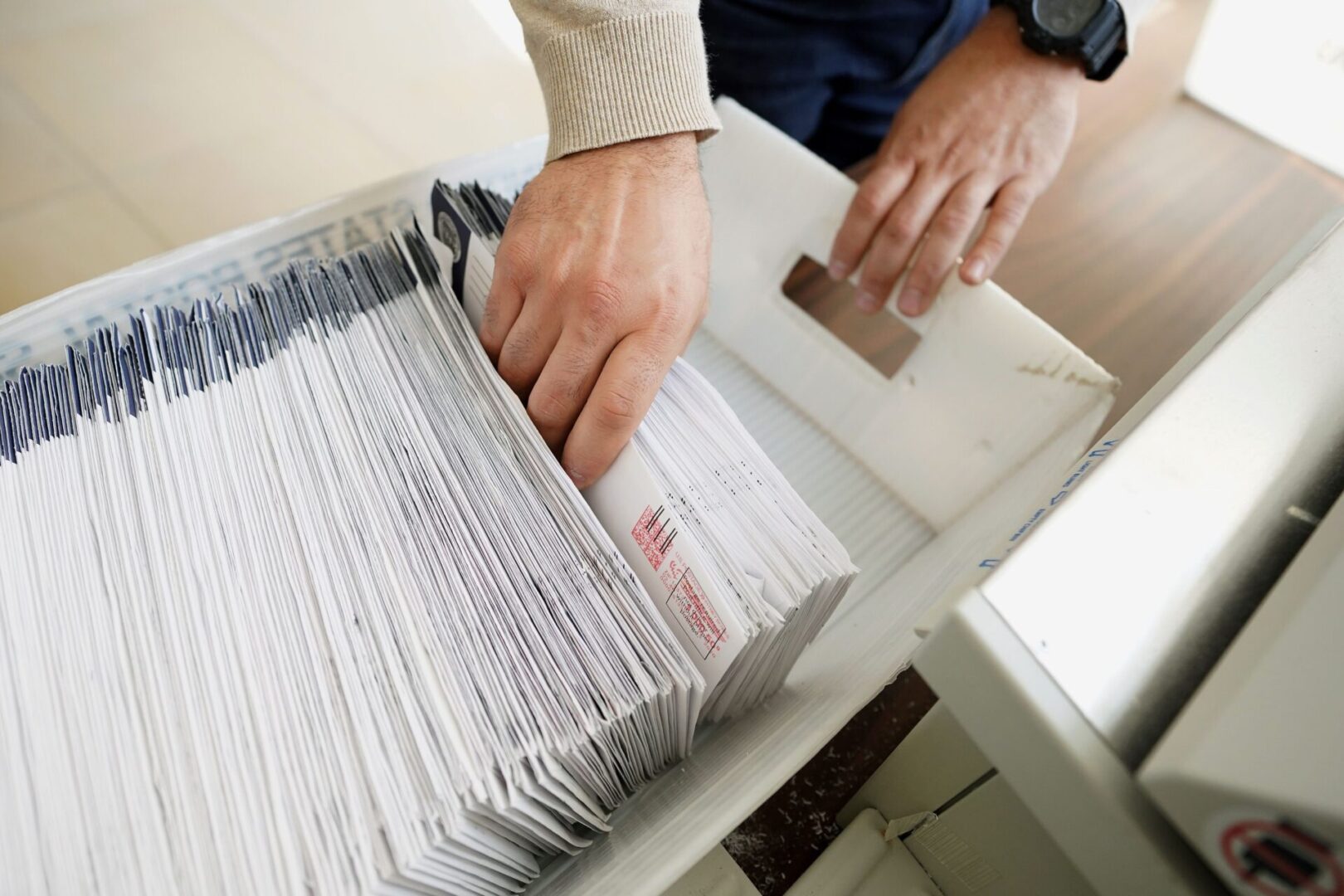This article is made possible through Spotlight PA’s collaboration with Votebeat, a nonpartisan news organization covering local election administration and voting. This article is available for reprint under the terms of Votebeat’s republishing policy.
A judge has told Delaware County to count ballots cast in person by voters whose mail ballots were rejected during the primary, a ruling the county, even though it lost the case, says it welcomes.
Following the May 16 primary, Delaware County’s Board of Elections decided not to accept provisional ballots cast in person by voters who had already been told their mail ballots were rejected due to technical defects. That means that these voters were twice rejected, after trying to remedy their mail ballot mistake by voting provisionally at their nearby polling places, and ultimately were disenfranchised.
One provision in the state’s election codes suggests the ballots should not be counted, while a separate provision reads differently, in favor of counting such a ballot.
Delaware County Court of Common Pleas Judge John Whelan ruled that such ballots must be counted, writing that the law must be “liberally construed” so as to “protect the elective franchise.” His ruling applies only to Delaware County.
Voters who brought the suit said the ruling ensures provisional ballots are counted the way they’re supposed to be.
“I take seriously my right to vote, and have voted in almost every primary and general election in the 50 years I have lived in Pennsylvania,” said Barbara Welsh, one of the residents who sued. “I prefer to vote by mail because I work at the polls and want to be certain my vote will be counted. Because I made a mistake in the date on the envelope, my vote was disallowed. This ruling in the Delaware County Court of Common Pleas allowed my vote to be counted.”
Welsh and two other disenfranchised older voters were represented in the suit by the Public Interest Law Center alongside the American Civil Liberties Union of Pennsylvania.
“Eligible voters should have every option under the law to make their voice heard, and access to provisional ballots is a crucial part of making this a reality in our commonwealth,” said Ben Geffen, senior attorney at the Public Interest Law Center via press release. “This court decision does not change the winner of any race, but it means something to every Pennsylvania voter.”
The county said it appreciated the clarity the judge’s ruling provides.
“Now, if a voter fails to sign or date an absentee envelope, this court order clears the way for that voter to go to the Election Day polling place to cast a ballot,” Delaware County Elections Director Jim Allen said. “This protects the right to vote for those who may not have the time or means to get a replacement absentee ballot by Election Day.”
While county election officials believed the ballots should be counted on principle, they originally felt their hands were tied by their reading of the law. The dispute hinged on a contradiction between Pennsylvania’s vote-by-mail law and the state’s statute governing provisional voting.
Provisional ballots are given to voters whose eligibility to vote is in question when they check in at a polling place. Election officials withhold those ballots from being counted until the voter’s eligibility can be confirmed.
The provisional ballots at issue in Delaware County came from voters who had requested and returned a mail ballot but had that mail ballot canceled by the county due to defects before the vote was tallied. By law, counties cannot count mail ballots that lack a signature, proper date or that are returned without being placed in a secrecy envelope, though a case making its way through the federal courts may change that
Act 77, the 2019 law that established no-excuse mail voting in Pennsylvania, says “a provisional ballot shall not be counted if … the elector’s absentee ballot or mail-in ballot is timely received by a county board of elections.”
In the ACLU’s petition asking the Delaware County Court of Common Pleas to compel the board to count the ballots, the organization argued that another portion of the statute took precedence. That section says that as long as a voter is eligible to vote, their signature on the provisional ballot envelope matches their registration and they have not “cast” another ballot, their provisional ballot “shall” be counted.
The total number of twice-rejected voters in the May primary was small — the ACLU initially said it identified six — largely because Delaware County’s municipal primary was a low-turnout, off-year election. In a presidential or midterm election year, the number of these twice-rejected voters under this policy could be much higher.
In last year’s midterm elections, more than 16,000 Pennsylvania voters had their mail ballots rejected for reasons like date errors or missing signatures, including more than 900 in Delaware County.
BEFORE YOU GO… If you learned something from this article, pay it forward and contribute to Spotlight PA at spotlightpa.org/donate. Spotlight PA is funded by foundations and readers like you who are committed to accountability journalism that gets results.



